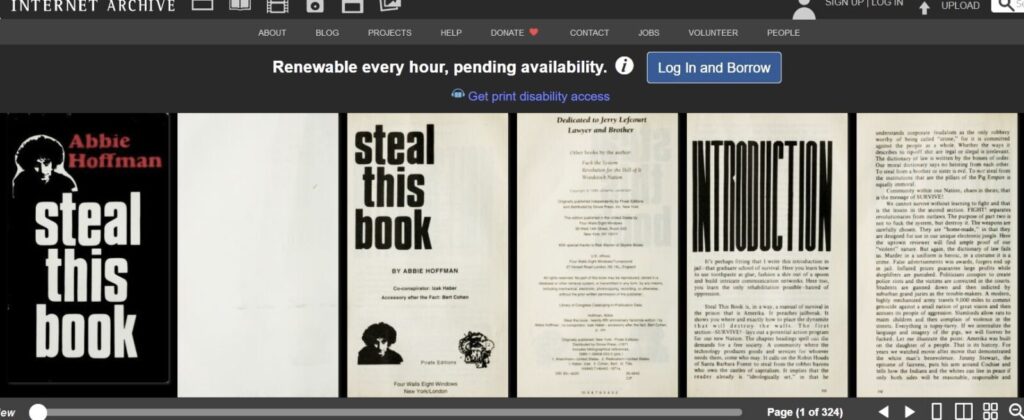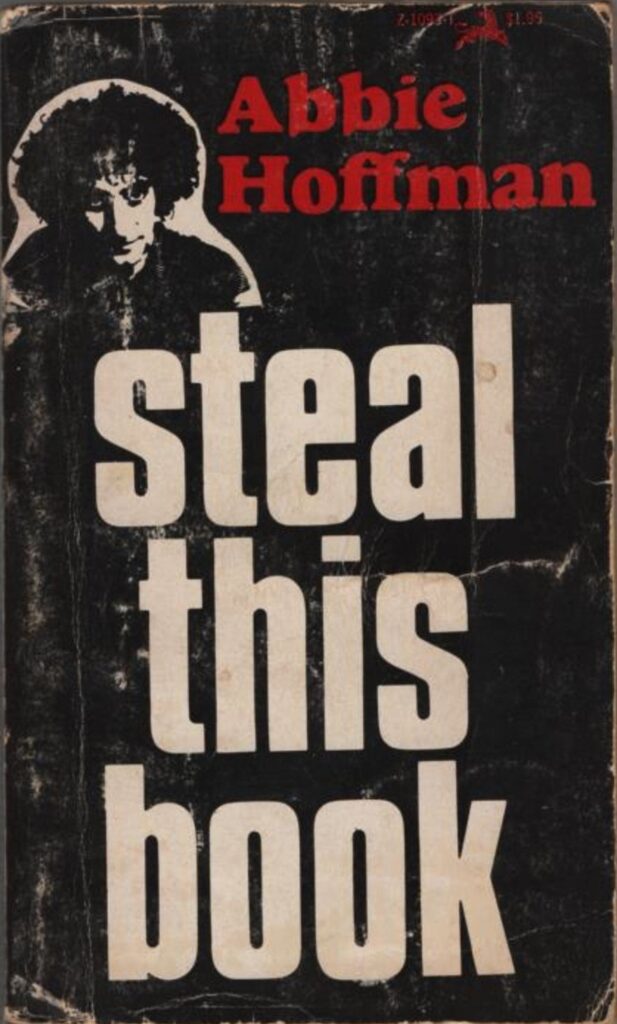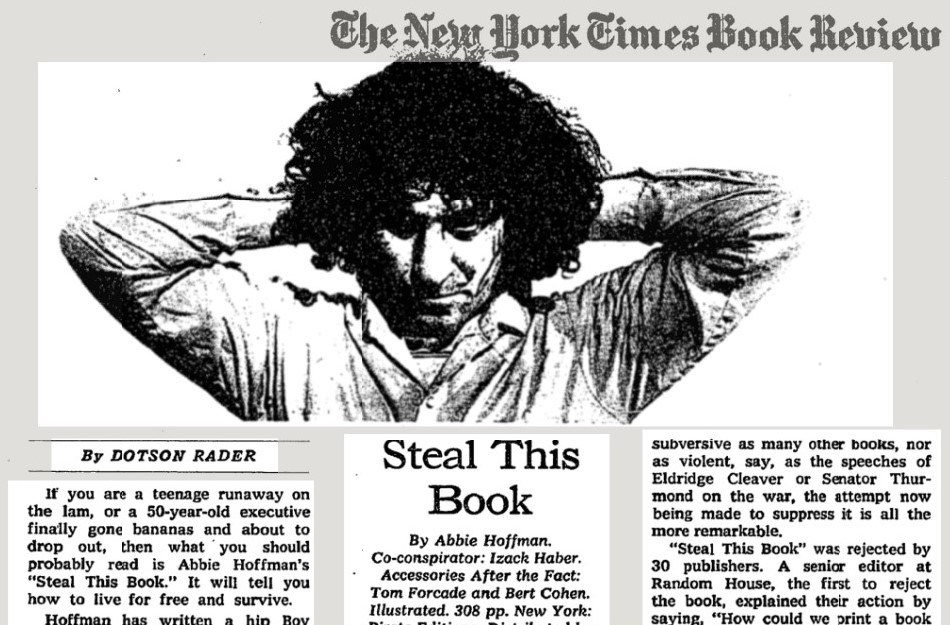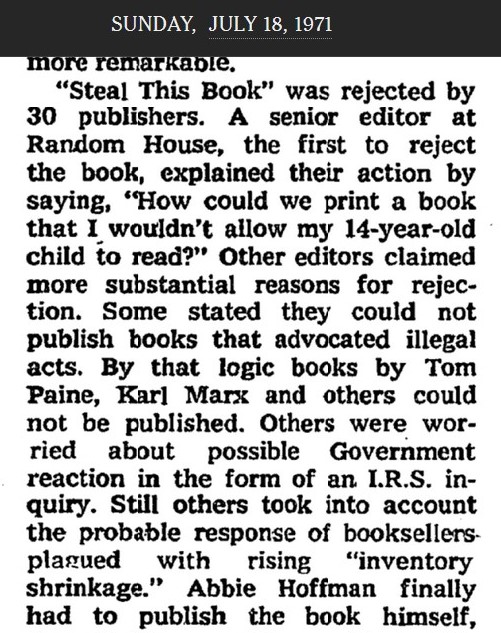Fifty years ago, when Steal This Book was published by Abbie Hoffman, Peter Vandevanter, Class of 1973, checked to see if the bookstore would carry it. He shared his findings in the Daily Princetonian (March 18, 1971): “Princeton’s book store seems amused and un-intimidated by the new book. ‘I definitely couldn’t put a book like that out on the shelves, because I’m afraid someone would steal it,’ commented Ralph Shadovitz, the buyer for the Princeton Book Mart on Palmer Square. But he does plan to stock the book behind the counter if it receives sufficient advertising. The Princeton University Store has ordered the paperback, which will be ready for sale in mid-April. The Resistance Book Store has no knowledge of the new Hoffman book, according to co-manager Mary Ann Bacon. ‘If Abbie Hoffman will send it to us free, we’ll be glad to put it on the shelves for anyone to take free.’”
 At the time, neither Princeton University Library nor the Library of Congress added the book to their holdings. Today, a section from the book can be read in Princeton’s copy of “The Best of Abbie Hoffman.” Both Harvard and Yale have a copy locked in the non-circulating rare book vaults. No copy is available on Googlebooks or HathiTrust, although a portion of the study guide for students is available online (listed as a nonfiction classic). If you are a member of the Internet Archive, you can log in and read it, otherwise only the first few pages are visible.
At the time, neither Princeton University Library nor the Library of Congress added the book to their holdings. Today, a section from the book can be read in Princeton’s copy of “The Best of Abbie Hoffman.” Both Harvard and Yale have a copy locked in the non-circulating rare book vaults. No copy is available on Googlebooks or HathiTrust, although a portion of the study guide for students is available online (listed as a nonfiction classic). If you are a member of the Internet Archive, you can log in and read it, otherwise only the first few pages are visible.
Although the book was published in April 1971, it wasn’t until July that Dotson Rader reviewed it for the New York Times, beginning “If you are a teenage runaway on the lam, or a 50-year-old executive finally gone bananas and about to drop out, then what you should probably read is Abbie Hoffman’s Steal This Book. It will tell you how to live for free and survive.”
In his introduction, Norman Mailer writes, “this book is a remarkable document, is, indeed, the autobiography of a bona fide American revolutionary . . . . Of course, we all think we know the sixties. I always feel I can speak with authority on the sixties and I never knew anybody my age who didn’t feel the same way (whereas try to find someone who gets a light in their eyes when they speak of the seventies). Yet reading this work, I came to decide that my piece of the sixties wasn’t as large as I thought. If we were going to get into comparisons, Abbie lived it, I observed it.”





